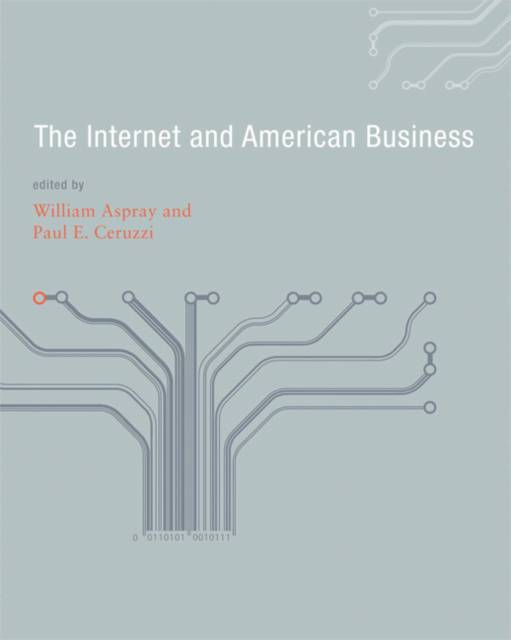
- Retrait gratuit dans votre magasin Club
- 7.000.000 titres dans notre catalogue
- Payer en toute sécurité
- Toujours un magasin près de chez vous
- Retrait gratuit dans votre magasin Club
- 7.000.0000 titres dans notre catalogue
- Payer en toute sécurité
- Toujours un magasin près de chez vous
The Internet and American Business
Description
The effect of a commercialized Internet on American business, from the boom in e-commerce and adjustments by bricks-and-mortar businesses to file-sharing and community building.
When we think of the Internet, we generally think of Amazon, Google, Hotmail, Napster, MySpace, and other sites for buying products, searching for information, downloading entertainment, chatting with friends, or posting photographs. In the academic literature about the Internet, however, these uses are rarely covered. The Internet and American Business fills this gap, picking up where most scholarly histories of the Internet leave off--with the commercialization of the Internet established and its effect on traditional business a fact of life. These essays, describing challenges successfully met by some companies and failures to adapt by others, are a first attempt to understand a dynamic and exciting period of American business history. Tracing the impact of the commercialized Internet since 1995 on American business and society, the book describes new business models, new companies and adjustments by established companies, the rise of e-commerce, and community building; it considers dot-com busts and difficulties encountered by traditional industries; and it discusses such newly created problems as copyright violations associated with music file-sharing and the proliferation of Internet pornography.
Contributors
Atsushi Akera, William Aspray, Randal A. Beam, Martin Campbell-Kelly, Paul E. Ceruzzi, James W. Cortada, Wolfgang Coy, Blaise Cronin, Nathan Ensmenger, Daniel D. Garcia-Swartz, Brent Goldfarb, Shane Greenstein, Thomas Haigh, Ward Hanson, David Kirsch, Christine Ogan, Jeffrey R.
Spécifications
Parties prenantes
- Editeur:
Contenu
- Nombre de pages :
- 608
- Langue:
- Anglais
- Collection :
Caractéristiques
- EAN:
- 9780262514811
- Date de parution :
- 13-08-10
- Format:
- Livre broché
- Format numérique:
- Trade paperback (VS)
- Dimensions :
- 173 mm x 225 mm
- Poids :
- 898 g

Les avis
Nous publions uniquement les avis qui respectent les conditions requises. Consultez nos conditions pour les avis.





